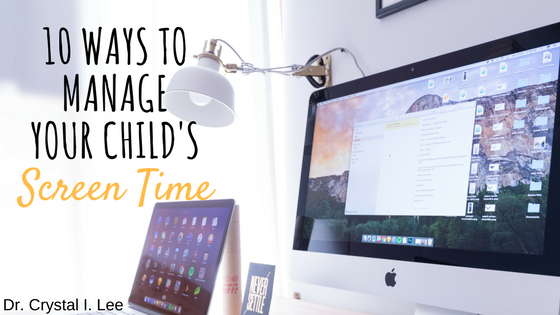
More and more parents are reaching out to me for support in managing their child’s electronic use. More so than generations before, young people’s worlds revolve around their electronics. Electronics are integral parts of the social lives. Even schools are beginning to rely more on the internet to do academic management. In this world where electronics are a necessary part of life, how do you create healthy boundaries around its use? Read on for some concrete tips.
Does your child have an electronics addiction?
Ask yourself these ten questions to find out.
1. In the Beginning, Structure Screen Time
How you structure screen time is up to you. You can set rules such as there’s 15 minutes of screen time in the morning before school and an hour of screen time at night after homework is finished. You can have different “allowances” for school days versus weekends and vacations. You can create “no electronics” zones, like at dinner.
2. Be Clear and Consistent
When you first start implementing boundaries, there will certainly be arguments, tears, and whining. In the beginning, it’s especially important to stay strong and not give in because this sets the tone for everything else that follows. By being consistent and not giving in, your child learns that those behaviors will have little impact on their ability to get more screen time.
3. Allow for Flexibility
Once it’s established that “the rules are the rules”, then you can start giving some leeway for special circumstances, if you’d like. If your teen has been very respectful of the rules and asks for a little extra time because her best friend is live streaming, then you might consider giving her an extra fifteen minutes of screen time.
4. Remember, Screen Time is a Privilege
Your child doesn’t get the privilege of screen time unless he/she is being a responsible member of the family. It’s up to you if that means they can have short access to screen time after chunks of doing work (e.g., homework, chores) or if all their responsibilities have to be completed before having any access. But definitely remember that screen time is a privilege, not a right.
5. Be Vigilant
In most cases, your teen or emerging adult knows way more about electronics than you do. When you first start setting boundaries and structure, expect possible sneakiness. Your child might figure out a way to bypass whatever password you put on the wi-fi. Or maybe he’s using the neighbor’s wireless internet. Your child might even being using her cell phone’s hot spot so she can have internet for their laptop. If you’re not especially tech savvy, do some online research to see what work arounds other parents have discovered.
When I was a director of a residential, electronics addiction was a huge problem for some of my residents. To ensure my residents didn’t use their electronics when they weren’t supposed to, my staff literally collected their phones, laptops, iPods, tablets, and any other electronic device. It all got locked up, and only staff had the key. Of course, this wasn’t a permanent solution. I wanted my residents to eventually learn to manage their electronics independently. (See #10)
6. Replace Screen Time with Other Pleasurable Activities
Once your child is unhooked from electronics, he/she might be left with huge chunks of free time. Unfortunately, many young people are not very adept at independently entertaining themselves. Helping your child find other pleasurable activities will take the sting out of no longer being able to use electronics. Look into things like organized sports, a theater class, or other hobbies.
7. But Also Allow for Boredom
It’s not your job to keep your child entertained every moment of their day. Boredom can be a good thing! It’s actually the source of creativity. Remember what childhood was like pre-electronics? When bored, children would use their imagination and come up with all sorts of creative things to do! Letting your child be bored is a wonderful opportunity for them to tap into that dormant creative self.
8. Give Praise
It might seem silly to praise your child for doing something he/she pretty much has to do. But don’t you feel good when your boss praises you for a job well done? You’re being paid to do the job, and you didn’t have a choice but to do it. It still feels nice to have your hard work acknowledged, though, right? Same for your kids! It’s also nice to throw in some empathy because, for a teen, it is really hard to disconnect from electronics. There’s an intense fear of missing out. Acknowledge that.
9. Be a Role Model
With teens and emerging adults, one of the worst things you can do is be a hypocrite. If you’re not following the “no electronics at the dinner table” rule, how can you expect your teen to take the rule seriously? Model good habits, and your child is more likely to follow suit.
10. Move Towards Independence
The end game is for your child to learn healthy electronics use habits. It’s not for you to have to manage their electronics use in perpetuity. That’s unrealistic, especially if you expect your child to become independent, go off to college, and live on their own.
Once your child has demonstrated less reliance on their electronics, start giving your child more control of their screen time. Move towards giving a general daily screen time allowance. Let your child choose how to use the allowance. Once your child demonstrates healthy electronics usage with a daily allowance, move towards a weekly allowance. If your child starts falling into bad habits, then increase the structure and try again later.
Need more individualized support parenting your teen? Contact Dr. Lee to see how she can help.



